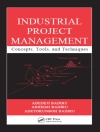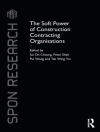Human resources are a key element in ensuring the quality and content of tourism products. There is a growing need for skilled manpower able to meet the needs of a changing environment and to maintain the competitiveness of tourism enterprises. In a competitive labour market, the tourism sector suffers from a relatively poor image and finds it difficult to retain employees on a long-term basis. In the light of these changes and challenges, strategies for managing and promoting human resources have a central role to play in a sustainable development approach to tourism. The understanding of labour markets in the tourism sector remains inadequate. In the current financial climate, most organisations are having to become increasingly cost-conscious. At the same time, in an increasingly competitive industry such as travel and tourism, organisations are faced with the need to improve efficiency, which in turn means maximising the return on all available resources, whether these be financial or human. They need the right balance of people, with neither too many managers compared to the number of workers, nor an inexperienced workforce without adequate supervision and leadership.
Ravi Sharma
Organizational Behaviour in Hotels and Restaurants [EPUB ebook]
Organizational Behaviour in Hotels and Restaurants [EPUB ebook]
यह ईबुक खरीदें और 1 और मुफ़्त पाएं!
भाषा अंग्रेज़ी ● स्वरूप EPUB ● पेज 294 ● ISBN 9789387846302 ● प्रकाशक Anmol Publications PVT. LTD. ● प्रकाशित 2013 ● डाउनलोड करने योग्य 3 बार ● मुद्रा EUR ● आईडी 6284040 ● कॉपी सुरक्षा Adobe DRM
एक DRM सक्षम ईबुक रीडर की आवश्यकता है












